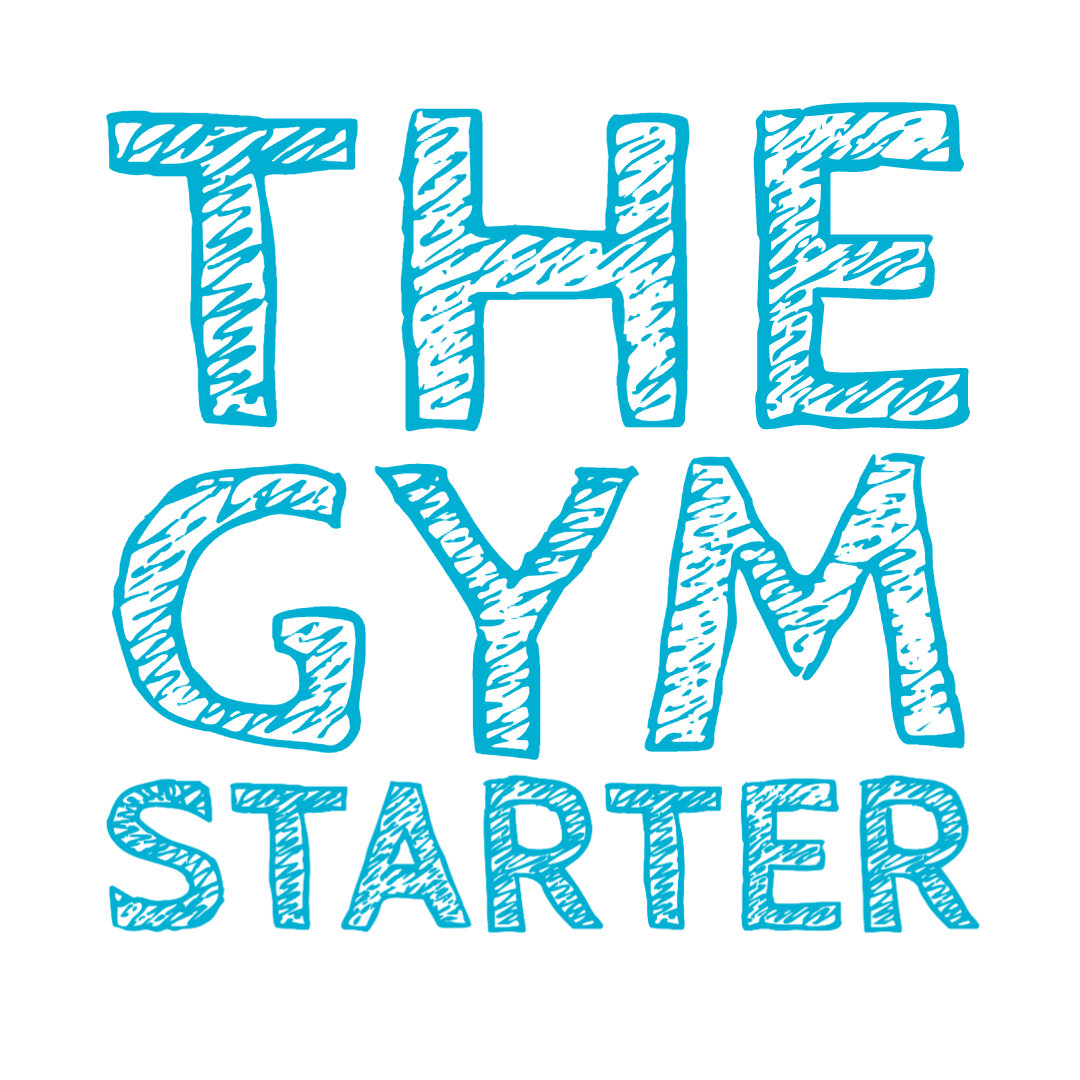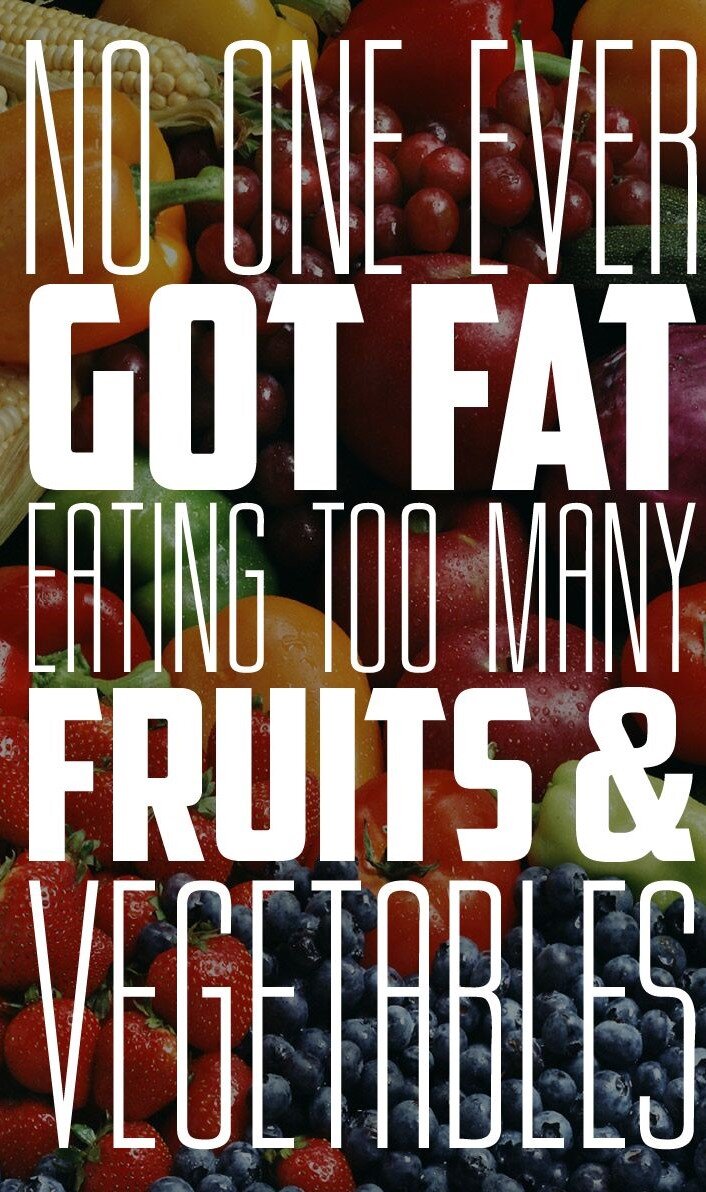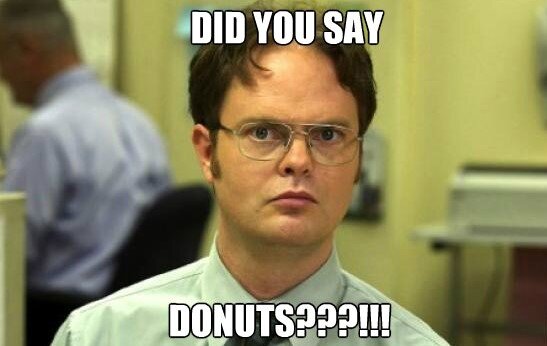What is a Calorie Deficit Diet Plan?
Recently on Instagram, I have been getting this question A LOT. And I mean a lot.
The pattern of behavior is thus:
I post up a picture asking what do you need help with?
I then get a response from someone saying “How do you lose belly fat?”
I respond with this:
And I then get a reply to that picture saying:
“Can you please tell me the diet of a Calorie Deficit?”
For a while this would stump me, I’d sit there thinking what do you mean?
There’s no rule of it in terms of a diet. You just have to set yourself up with a Calorie Deficit and away you go.
Then after this happened maybe 30 times.
I realized something.
Something crucial.
These people believed that a Calorie Deficit is some kind of restrictive diet like a Ketogenic Diet or an Atkins Diet. It finally all clicked together in my mind.
People want me to be able to tell them the ratios of Macros, the foods you should and shouldn’t eat and set them up with a little packaged diet which they pay me upwards of $200 for and away they go.
And if that's you, I’m sorry. I would love to take your money. But it's just not how weight loss should work.
You see…the world has hated on you and your struggle with weight so much it has led you to believe there is a secret out there that you can pay someone like me to give you and you will find the answer to your problems.
It's the world of BoomBod or now worse Skinny Jab. The world of MLMs dominating the past decade with questionable nutrition and awful science all in the name of capitalism.
And it's got to stop.
As always in this article, I am going to take you through the not so magical facts of what the Calorie Deficit is.
So you can understand it, begin to implement it and above all start to really learn the science behind every fat loss diet out there.
Now before we get into this article, I wanted to ask you something.
Do you want to be my friend?
If it is a yes, then it would be wonderful if you got onto my email list.
I’ll email you things. Sometimes they will be educational, sometimes they will be inappropriate, sometimes I might just want to know how you are; either way…it would be delightful to connect with you more.
Just send me a friend request by filling out the form below…
Oh, and I will also send you some free fitness goodies to help start our new friendship off on the best foot possible.
Table of Contents for: What Is A Calorie Deficit Diet Plan?
What is a Calorie Deficit Diet Plan?
Principle — What does a Calorie Deficit actually mean?
Calorie Deficit is the term used, to sum up a negative energy balance in the body.
The energy balance equation is this:
Calories In = Caloires Out = No Weight Change
Caloires In > Calories Out = Weight Gain
Calories In < Calories Out = Weight Loss (A Calorie Deficit)
Theoretically, I’m sure that makes sense to you, and the next question you may have would be…what actually is a Calorie.
I’ve said this before…and I will say it again because it cannot be said enough. A Calorie is a Unit of Measurement used to measure the energy in food.
The actual definition is this:
Calorie: noun
Thermodynamics.
a: Also called gram calorie, small calorie. an amount of heat exactly equal to 4.1840
joules. Abbreviation: cal (usually initial capital letter) kilocalorie. Abbreviation: Cal
Physiology.
a: a unit equal to the kilocalorie, used to express the heat output of an organism and the fuel or energy value of food.
b: a quantity of food capable of producing such an amount of energy.
But think of a Calorie like this:
A Mile is a unit of measurement of distance. A Calorie is a unit of measurement of food.
Run 26.2 miles you have run a Marathon.
Eat an additional 7000kcal in your diet you will gain 1kg.
Eat 7000kcal less in your diet and you will lose 1kg.
That's it.
Now that we understand what a Calorie is. We can begin to see how the manipulation of this can lead to weight gain or weight loss.
For the purpose of this article…let's continue to look at weight loss.
A study published in 2011 stated this:
American Dietetic Association (ADA) has noted that achieving a negative energy balance is the most important factor affecting amount and rate of weight loss over time (2)
It also stated this:
The results of this substudy indicate that increases in fruits, vegetables, and low-fat dairy, as part of a calorie-controlled diet, help both achieve and maintain weight loss (2)
(That second one is just good advice which is why I put it in here)
Combined with always remembering the following quote:
Now that you know what a Calorie is, and what the actual definition of a Calorie Deficit is combined with some good old dietary advice we should now begin to look at why you should use a Calorie Deficit if you want to lose weight.
What is a Calorie Deficit Diet Plan?
Why should you use a Calorie Deficit?
Despite in the previous section of this article I have stated clearly that the only way to lose weight is a Calorie Deficit I feel we need to drill down on the practical and emotional side of it a lot more…and why I believe that operating under the term a Calorie Deficit to lose weight is and will always be your best option of obviously losing weight…but also how you frame your weight loss journey.
Every diet in the world that perpetuates Weight Loss operates a system that is designed to get you into said “Calorie Deficit”.
Make no mistake. Science is clear. The studies are clear. And I cannot be clearer.
The only way to lose weight is with a Calorie Deficit.
I can hear your brain rattling around these questions as you read:
“So what about Keto? What about Atkins? What about Slimming World? What about MLM Companies? They all tell me I can lose weight and I never hear of them talking about Calories”
They are being disingenuous.
If a company out there is taking your money to help you lose weight and they aren’t telling you this stuff about a Calorie Deficit…they are trying to keep you away from the truth…so that you keep giving them money.
They are blurring the waters with words like Syns, Points, and No Carbs. They are scared you will figure it out on your own and no longer hand over your cash to them to be shamed in front of a room full of people for gaining some weight.
Which is always going to happen if you only weigh yourself weekly.
Read My Article that has helped 100s of people improve their relationship with the scale right now:
Do You Have Scale Anxiety? Improve Your Relationship with the Scale
But they don’t tell you this.
Because it elevates them in your mind. It doesn’t put them in service to you…it puts you in service to them. Despite the fact most people who run these “groups” have no background in coaching, nutrition or actually helping others…they just got it together themselves and believe its as easy for others as it is for them.
And that's just being short-sighted.
By educating yourself on the science, the facts, and what is actually going on when you lose weight you are taking ownership of what you are doing.
You are not giving your power away to someone else.
By calling the method to your Fat Loss what it is…and allying yourself to the concept, science and truth of a Calorie Deficit you will be empowering yourself.
If you are reading this and you have got this far into the article you have probably experienced feelings of disempowerment before. Something like…
Step 1: Tried a diet,
Step 2: Got some results,
Step 3: Had to cease the diet due to its restrictive nature…and well…donuts.
Step 4: Lost results
Step 5: Felt like a failure.
Step 6: Gave up on yourself
Yes.
Yes, I did say donuts.
But please stay focussed.
Now if you have gone through that 6 step process in the past you know what I mean when I say “give away power”.
And that feeling of powerlessness is horrible. It undermines everything you do and above all how you feel about yourself.
And that's not good enough. Defining yourself by your diet will lead to failure when you eventually feel the need to change or move away from the said diet.
And this is the difference between them and I.
I take you to the root. The root of all Fat Loss/Weight Loss diets. A Calorie Deficit.
And when you have a trifecta of knowledge, education and power…that's going to make a difference to you.
All of these diets do one thing. They change how. How you get into a Calorie Deficit.
Which is the next part of this Article…
You see:
The Ketogenic Diet
Fewer Carbohydrates. When you cut out such a big macronutrient from your diet you will obviously be cutting down on Calories. But it's very restrictive and has many drawbacks.
A Canadian study in 2018 on the Ketogenic Diet has concluded this:
Ketogenic diets can help patients lose about 2 kg more than low-fat diets do at 1 year, but higher-quality studies show no difference. Weight loss peaks at about 5 months but is often not sustained. Individual weight change can vary from losing 30 kg to gaining 10 kg with any diet. (4)
I have a YouTube Video on the Ketogenic Diet if you would like to find out more about it.
Slimming World
Group about 20 calories together and call it a Syn (yup. They actually are going with a word that micro messages the following meaning: “an immoral act considered to be a transgression against divine law” (3)). They also let you eat as many free foods as you want, banking on the fact that “no one has ever got fat from eating too many fruits and vegetables”
At this point we should mention the following statement:
“You don’t have to count calories but all calories count” — Jordan Syatt
A study in 2015 had this to say about Slimming World:
“In the present audit mean weight loss was 3.9 kg, 37.7 % of the whole population and 75.7 % of the higher attendees lost ≥5 % during the first 3 months of their engagement in a commercial weight management programme. . These data show that by supporting citizens in the self-management of their weight, commercial weight management programmes have the potential to help decrease the prevalence of obesity and incidence of its costly co-morbidities, improving citizen health and helping to reduce the burden on national health care systems.” (5)
This study was also funded by Slimming World and only focusses on the first 3 months of someone's journey.
When you expand to a 12-month look at the results, from an independent source: The British Journal Of General Practice, they state this:
“In the short term all commercial weight-loss programmes appear to result in similar weight loss but the NHS alternative appears to produce less weight loss. At 12 months Slimming World led to greater weight loss but the differences between commercial programmes was small and of minor clinical importance.” (6)
Weight Watchers:
Very similar to Slimming World. They group calories together and allot your points based on your physiological factors. If you go over your points you are being incorrect. If you stay under you are being correct.
Interestingly of the same study cited above, Weight Watchers is the most effective Commercial Weight Loss system over 3 months. But the same conclusion is drawn over 12 months:
“The differences between commercial programmes was small and of minor clinical importance.” (6)
Juicing
Well when all you are doing is drinking juice…I think we can clearly see a Calorie Reduction at work here.
MLMs:
Getting you to drink super blends of Protein Shakes so you don't eat meals but rather drink them and surprise surprise…they have fewer calories in them than actual food.
I could go on.
But all of these diets manipulate the “How” of getting into a Calorie Deficit.
Without telling you that's what you are doing to lose weight, which is why they get short term results. But when you don’t know what you are doing and life gets on top of you, and you then have to stop attending weekly meetings, you can see how you will then regain weight after.
Depending on how these diets manipulate one aspect of a Diet, usually by restricting certain Macronutrients, depends on how restrictive and unsustainable it becomes.
In my experience, the Ketogenic Diet is far far far too restrictive and therefore has a high rate of success followed by failure.
My Calorie Deficit approach gives you flexibility.
Flexibility for a number of things:
Party Time
Dinners Out
Weddings
Holidays
Birthdays
Your favorite foods
It doesn’t give you a free pass. But it does give you the flexibility to be able to incorporate all of this into your life. Because a lot of those things will be and should be important to you.
What is a Calorie Deficit Diet Plan?
How do you set yourself up on a Calorie Deficit?
Now that you have a fantastic understanding of what is at play here…
It would be remiss of me to not leave you with some actionable advice.
Now if you want to start this Calorie Deficit thing. I refuse to call it a Diet…because I think we can both agree it is all diets.
Then you need to know how to do it.
Its a numbers game…and simply put I like to use this method to help you calculate how many calories you can have in a day.
Take your Goal Bodyweight (GBW) in LBS and then x12
For example: 150lbs x 12 = 1800kcal a day
Simple? You may be looking at that figure and thinking that's way too high, no diet has ever recommended I eat that much and still lose weight.
I use this figure as your “Upper Window” for your Deficit.
You can use your Basal Metabolic Rate as your “Lower Window” for your deficit.
I am giving you the gift of time. There should be no rush with you losing weight. Surely changing habits, changing lifestyles, and understanding how your food affects your weight and how you can be in control of that relationship is more important.
Here's a YouTube Video I have done explaining all of this a lot more clearly:
If you would like a Free Calorie and Macro Calculator PLUS a whole Weight Loss Bundle sent straight to your email then click here:
I would then follow this up with implementing my Five Awesome Rules For Fat Loss Life as a great place to start for getting yourself into a Calorie Deficit.
Now you just have to be patient.
A colleague of mine called Martin Macdonald once said this:
“A Calorie Deficit is a simple as “Calories in vs Calories Out”, the thing is Calories In vs Calories Out just isn’t that simple”
And he's right. There are so many factors that go into the food we eat.
Emotional Factors, Economical Factors, Ethical Factors, and figuring out where we stand on such fluid things can be hard.
One day you may well feel amazing and be able to stick within your numbers wonderfully. On other days you won’t, and you need to understand that navigating and understanding all of this is not as simple as sticking to Syns or counting your food as Points.
It’s not a Diet like what you are used to seeing. It’s not a diet that has any other parameter other than making sure you are in your numbers.
That’s the magic.
Do I want you to eat fruits and vegetables? Yes.
Do I want you to eat protein with every meal? Yes.
Do I want you to also be able to enjoy some time off and have social occasions? Yes.
Do I want you to be able to eat Pizza? Yes.
You see…what I have described above is how you fit a diet into a balanced well-rounded life.
And that's what you should want for yourself…really.
What is a Calorie Deficit Diet Plan?
Conclusions
Now I have spent a fair amount of time in this article trying to put a Calorie Deficit into perspective for you.
But the truth is this.
If you want to lose weight and you want to go forth with a Ketogenic Diet then do that.
Or Slimming World. Or Weight Watchers.
But promise me one thing.
You will only continue to follow these plans if they make you happy. If you aren’t happy then please stop.
Happiness will lead to enjoyment, which will lead to adherence which will lead to results which will lead to motivation.
That's a good train to be on.
It's my belief that only focussing on the term Calorie Deficit for your weight loss will make you happy, because you have the power, knowledge and education behind what you are doing.
But if being in a Calorie Deficit isn’t bringing you results, and isn’t making you happy then stop doing that too.
Because life is too short for you to not be happy.
A Calorie Deficit is and will always be the only way to lose body fat. How you get into that…is up to you as long as….
…..say it with me…
It makes you happy.
Did you find this useful?
I have plenty more articles about weight loss within this website.
Here is a selection I think would make great further reading for you:
You are also invited to get a bundle of Weight Loss Goodies from me and send me a friend request…
Get yourself a free month of workouts (Home and Gym-based options)
Get yourself a free copy of my e-book ”27 Ways To Faster Fast Loss”
Get yourself a free customized Calorie Calculator
Straight to your Inbox
And as I mentioned before….it would be awesome to chat further as friends…
All you have to do is put your email address in below:
References:
www.dictionary.com. 2020. Definition Of Calorie | Dictionary.Com. [online] Available at: <https://www.dictionary.com/browse/calorie> [Accessed 11 June 2020].
Champagne, Catherine M et al. “Dietary intakes associated with successful weight loss and maintenance during the Weight Loss Maintenance trial.” Journal of the American Dietetic Association vol. 111,12 (2011): 1826–35. doi:10.1016/j.jada.2011.09.014
www.dictionary.com. 2020. Definition Of Sin | Dictionary.Com. [online] Available at: <https://www.dictionary.com/browse/sin?s=t> [Accessed 11 June 2020].
Ting R, Dugré N, Allan GM, Lindblad AJ. Ketogenic diet for weight loss. Can Fam Physician. 2018;64(12):906.
Stubbs RJ, Morris L, Pallister C, Horgan G, Lavin JH. Weight outcomes audit in 1.3 million adults during their first 3 months’ attendance in a commercial weight management programme. BMC Public Health. 2015;15:882. Published 2015 Sep 10. doi:10.1186/s12889–015–2225–0
Madigan, Claire D et al. “Which weight-loss programmes are as effective as Weight Watchers(R)?: non-inferiority analysis.” The British journal of general practice : the journal of the Royal College of General Practitioners vol. 64,620 (2014): e128–36. doi:10.3399/bjgp14X677491









